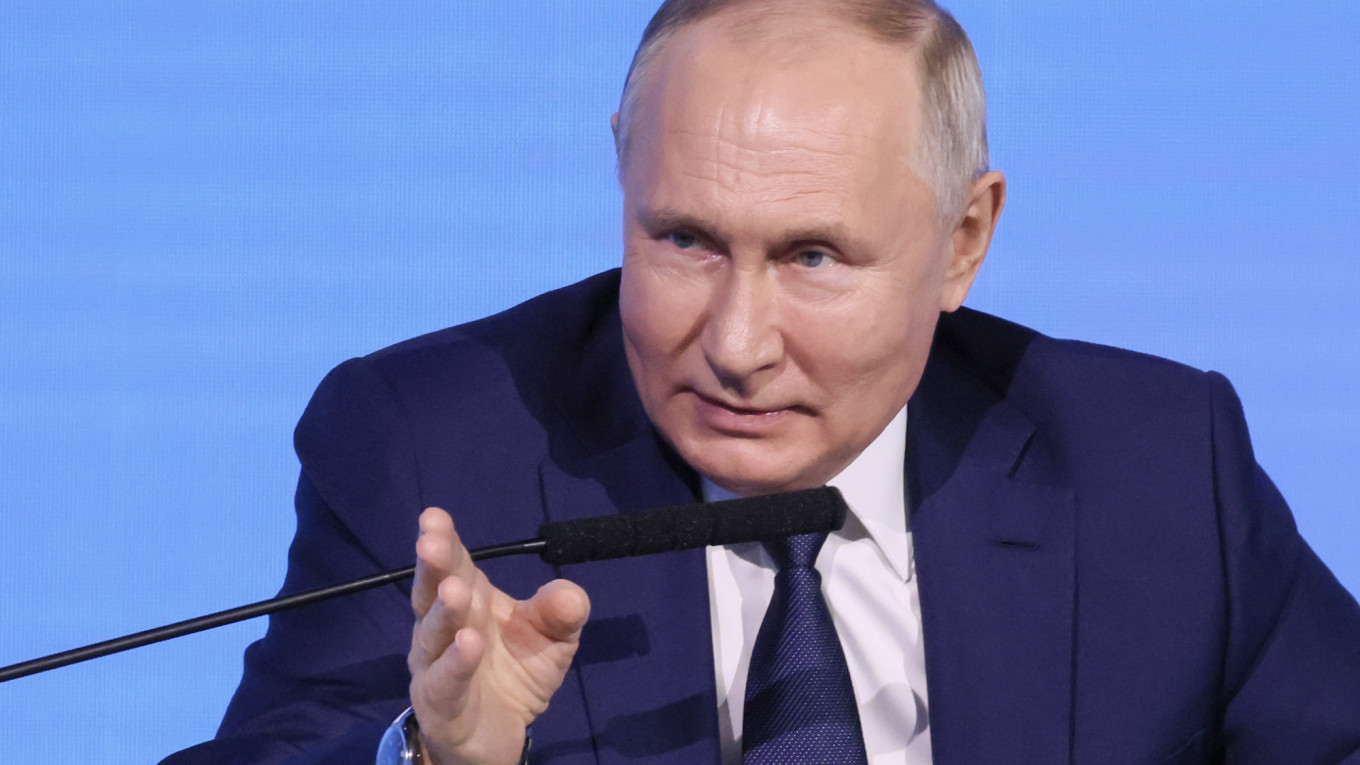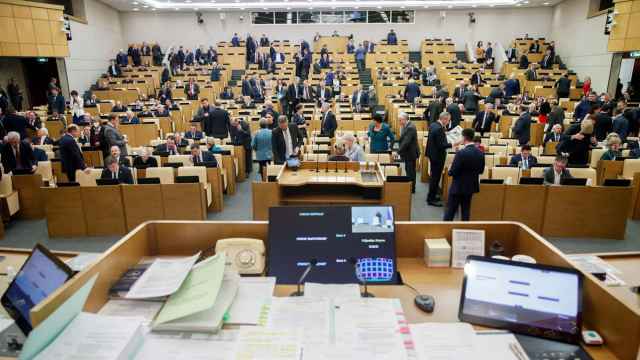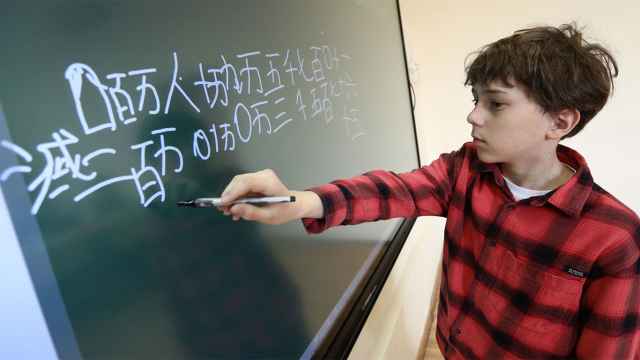President Vladimir Putin struck a triumphant tone at last week’s Artificial Intelligence Journey Conference in Moscow. With artificial intelligence playing a growing role in all parts of life, “humanity is beginning a new chapter of its existence,” he declared. Despite Putin’s bullish portrayal of Russia as a vanguard of AI innovation, the actual landscape of Russian AI development is grim, largely due to Putin’s own policies.
In his speech, Putin acknowledged the challenges facing Russia’s AI industry and announced plans to surmount them. Had they been implemented a decade ago – and had the little green men and the Spetsnaz stayed on their own side of the border – Russia may very well have become a leader in the field. Instead, the president seemed to betray a certain recognition of the country’s dire position.
Before the conference, Putin’s statements about artificial intelligence were optimistic but vague, stressing the potential of the technology and the need for Russia to maintain a presence in the field. He warned of the grave consequences of falling behind in the race. Those consequences have become unavoidable thanks to the invasion of Ukraine, which brought about an exodus of tech talent, a budget crunch that strangles investment, sanctions that deny Russia the chips needed for the immense computing requirements of AI and condemned the country to international isolation at a time of global research cooperation.
Putin’s four-point plan for addressing these deficiencies called for academies to broaden access to supercomputers, to increase the capacity of those supercomputers by an order of magnitude, to expand classes for applied AI at top universities, and for the state to devote more funding towards AI. He promised to release a more detailed strategy in the coming months.
Each part of this plan is necessary. But even all four together are wholly insufficient. Russia is facing a massive budget deficit. Without the economic capacity of its rivals, Moscow cannot hope to compete with them on financial investment. The Kremlin recently allocated 5.2 billion rubles ($57,247,000) to AI research in 2024. In 2022, the United States government allocated fifty times as much, which is seven times lower than the amount invested by venture capital firms in the same year. Even if Russia could allocate its resources perfectly, this investment gap means domestic availability of both AI know-how and computer capacity is likely to remain lagging.
Putin's speech also subtly acknowledged the security implications of the precarious state of Russian AI. Modern Large Language Models (LLMs) like ChatGPT are intended for a Western audience and trained on Western data. “They reflect that part of Western ethics, those norms of behavior, public policy, to which we object,” Putin warned. In response, he suggested Russia would use its upcoming presidency of BRICS to investigate these issues in detail.
Under the banner of “AI Ethics,” Putin is likely to seek the enforcement of standards that ensure AI serves only to reinforce authoritarian rule. Rather than leading this “new chapter” of humanity’s existence, Russia will end up lobbying China for consideration as a partner. The future is being shaped in labs in Beijing and Hangzhou, not Moscow.
Should Russia convince China of their shared interest in an AI ethics framework that safeguards authoritarians, Moscow may be able to import and train on foundational models that don’t undermine the regime. About 40% of all LLMs come from China. Chinese researchers have achieved this despite working under a censorship regime even more restrictive than Russia’s. They were able to strike this balance by following an ethical framework laid out in extensive detail by Beijing’s National Information Security Standardization Technical Committee.
These standards tell researchers to test random samples from the body of text used to train their models for unallowable content. They must then reject any training data where over 5% of returned samples are problematic. Researchers are to run tests on thousands of queries containing banned keywords and validate whether the results are permissible. Companies with public chatbots are required to expand moderation teams along with their user base and promptly remove offending answers.
One requirement, where Russia’s current models would certainly fail, is that chatbots can only refuse to answer 5% of prompts on sensitive topics. If Russia adopted a similar standard, it could stop citizens from turning to Western alternatives out of frustration.
Putin referenced “ethics” seven more times in the speech and called for an update to the National AI Ethics Code. Putin’s concern that Western-trained models can pose a threat to his rule is well-founded. By lobbying for next-generation AI that will conform to the Kremlin’s will, Russia can reap the rewards of this technology while avoiding the intensive task of building its own.
In the global AI race, in which China is close on the heels of the United States, there is an unfortunate glut of supply of models that can be made to adhere to the standards of authoritarian regimes. In line with Putin and Xi’s effort to create a multi-polar global order to counter the West, a BRICS-led AI ethical framework will let dictators deploy the best the technology has to offer while maintaining firm control over their country’s information spaces. But like with so much else since the invasion, Russia must give up its leadership ambitions and accept the status of junior partner.
A Message from The Moscow Times:
Dear readers,
We are facing unprecedented challenges. Russia's Prosecutor General's Office has designated The Moscow Times as an "undesirable" organization, criminalizing our work and putting our staff at risk of prosecution. This follows our earlier unjust labeling as a "foreign agent."
These actions are direct attempts to silence independent journalism in Russia. The authorities claim our work "discredits the decisions of the Russian leadership." We see things differently: we strive to provide accurate, unbiased reporting on Russia.
We, the journalists of The Moscow Times, refuse to be silenced. But to continue our work, we need your help.
Your support, no matter how small, makes a world of difference. If you can, please support us monthly starting from just $2. It's quick to set up, and every contribution makes a significant impact.
By supporting The Moscow Times, you're defending open, independent journalism in the face of repression. Thank you for standing with us.
Remind me later.






